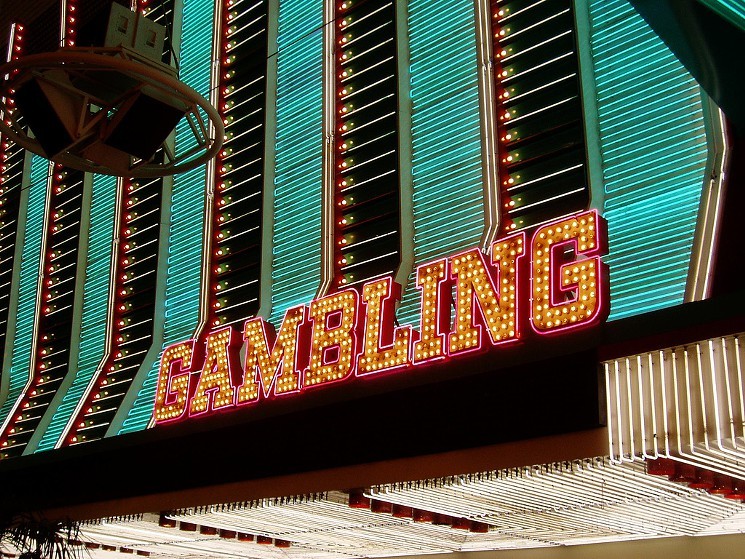Here’s a long story with a detailed answer to what is honestly a straightforward and easy to understand question.
In its effort to bring casinos to Texas, Las Vegas Sands — the gaming empire started by the late Republican megadonor Sheldon Adelson — hired an army of lobbyists and spent millions more on TV ads, all after an election season in which Adelson’s largesse was key in helping the state’s Republicans remain in power.
But the gargantuan undertaking ultimately did not make it far at the Capitol, with Sands’ legislation failing to make it to the floor of either chamber and not even receiving a committee hearing in the Senate.
The legislation — which required voter approval — would have brought a monumental expansion of gambling to Texas, which has some of the most restrictive gaming laws in the country. The centerpiece of the Las Vegas Sands proposal was to build “destination resorts” with casino gambling in the state’s four biggest metropolitan areas.
The company had insisted it was committed to Texas for the long term. But people involved in the effort point to at least a few factors that stood in the way of more progress in their debut session.
There was the difficulty breaking through in a session dominated by the coronavirus pandemic, the winter weather crisis and Republican leaders’ contentious priorities, which are now leading to at least one special session. There was Lt. Gov. Dan Patrick’s perceived opposition to expanding gambling that made Senate progress a tall order. And there was the relatively late filing of the Sands-supported legislation, giving lawmakers less time than usual to digest what would be a hugely consequential change to the Texas economy.
While Sands took pains to clarify that casinos would not be a fiscal cure-all for Texas, some supporters of the proposal said they were nonetheless hampered when the state’s budget projections turned out better than expected, decreasing curiosity in new revenue streams.
“Something this big and complex takes time, and we’re only up here five months of every two years,” said Rep. John Kuempel, R-Seguin, who carried the Sands-backed bill in the House. “These things take time.”
Las Vegas Sands ended up spending as much as $6.3 million on lobbying at the Capitol, according to state records, plus what the company pegged as at least $2 million on a statewide ad campaign. It is likely that the company’s total spending topped $10 million, given the number of weeks that the company stayed on the air in the state’s most expensive media markets.
It was easily the biggest campaign to expand gambling in Texas that the state has seen in a long time.
As session wound down and it became clear that Sands’ House bill would not advance, Sands issued a statement in which it claimed it made “great strides” this session and promised to “continue to build community support across the state to ultimately turn this vision into a reality.” Sure enough, the company continued airing TV ads promoting its plan in the weeks after the proposal’s fate had crystallized.
One Republican lawmaker who sits on the House committee where the bill died had a less optimistic outlook.
“It fell really flat,” Rep. Matt Shaheen of Plano said of Sands’ overall push this past session. “It just didn’t go anywhere. It was a bad investment on Sands’ behalf, and I think any future investments will continue to be a bad investment.”
Emphasis mine. All of the reasons cited here are valid, and we knew about them in January when this effort began in earnest, but the one I’ve highlighted is the real reason. As long as Dan Patrick rules the Senate, nothing will happen that he personally does not approve of. As with marijuana reform and all of the long analyses of its continued failure, I don’t quite get the reluctance to be clear about that.
To be sure, efforts to expand gambling have been pursued, and have abjectly failed, for a long time now, well before Dan Patrick was on the scene. Earlier efforts had their own reasons for failure, and it should be noted – it should always be noted – that the goal has always been a constitutional amendment, which would require the approval of voters to go into effect. It also requires a two-thirds majority in each chamber, which is a big lift and which suffers from the problem that religious conservatives, mostly Baptist groups, strongly oppose expanded gambling in Texas. That much has not changed, and it too is an obstacle that will endure. All of Sheldon Adelson’s money and army of lobbyists can only do so much about that.
This is where I say again that I am ambivalent about expanded gambling, and if it ever does come to a vote I’ll have to think about it, and my decision will be based on the merits of the specific proposal. Let’s just say that I’m not at all unhappy that a law that would have put a lot of money into the estate of a terrible person like Sheldon Adelson did not make it through.
Finally, the story notes that a parallel push for sports betting, which worked in tandem with the casino effort and also had various professional teams on its roster, also failed. Dan Patrick opposed that as well, so everything I’ve said already applies.

